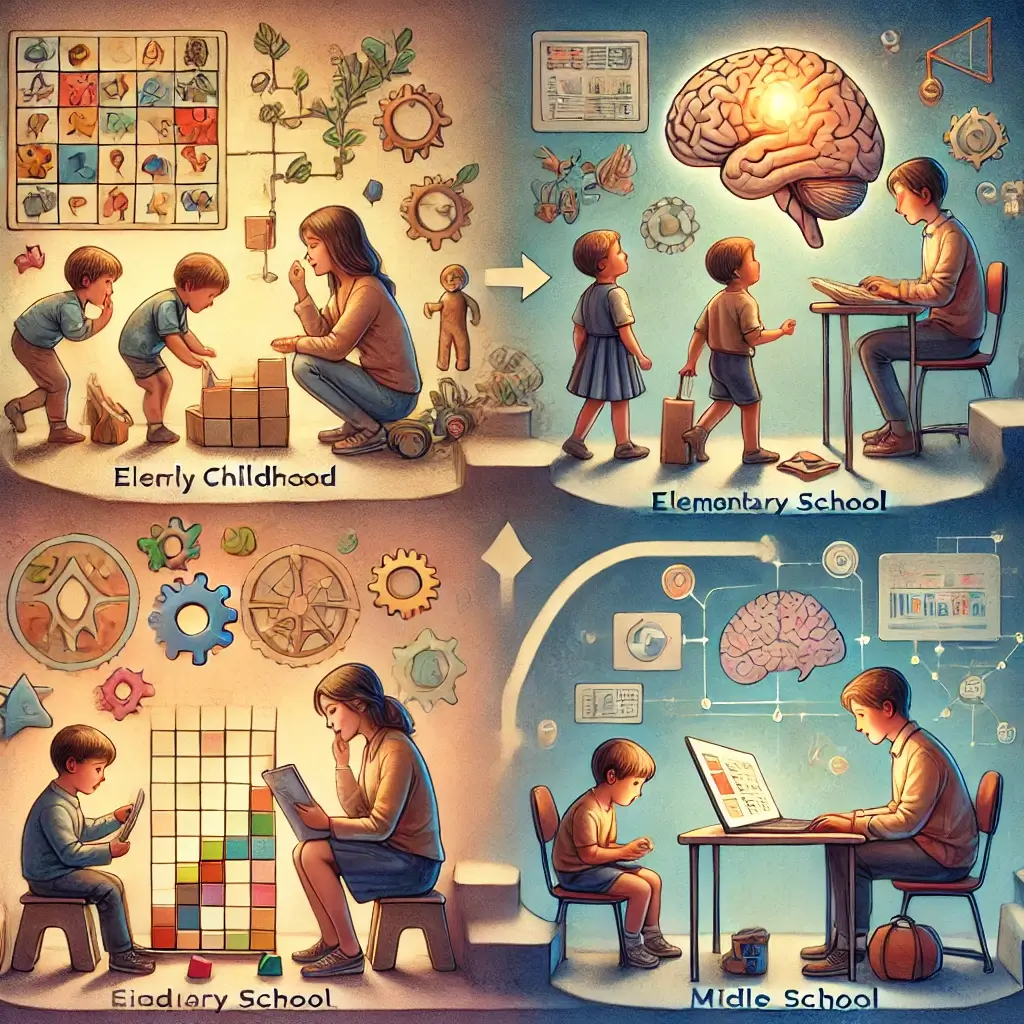Ages 2-10: Essential Guide to Building Your Child’s Independence Skills
The Foundation of Personal Development
Childhood is a time of discovery, growth, and increasing autonomy. The ability to perform age-appropriate tasks independently not only builds confidence but also equips children with critical life skills. From tying their shoes to navigating social interactions, milestones of independence between the ages of 2 and 10 form the foundation of personal responsibility and self-assurance. Dr. Sarah Thompson, a renowned developmental psychologist, observes, “The process of fostering independence is not about letting go but about empowering children to take ownership of their decisions and actions, step by step.”
Research-Backed Evidence
The significance of nurturing autonomy in children is underscored by recent studies. A 2024 review in the Pediatric Independence Research Review found that structured independence-building activities improved problem-solving abilities by 60% and emotional regulation by 40%. Furthermore, children who achieve independence milestones during these formative years are 70% more likely to demonstrate leadership skills and academic success in adolescence (Harvard Child Development Center Study, 2024).
Early Years Development
Ages 2–3 Years: The First Steps Toward Autonomy. Toddlers are naturally curious and eager to explore their environment. During these years, parents can encourage early independence by focusing on manageable tasks. According to the American Academy of Pediatrics Guidelines (2024), common milestones for toddlers include helping with dressing and handwashing under supervision, putting toys away after playtime, and making simple choices, such as selecting a snack or a toy.
Building Confidence Through Action
Ages 4–5 Years: Confidence in Action. As children grow, their motor skills and cognitive abilities improve, enabling them to take on more responsibilities. At this stage: 90% of children can manage bathroom routines independently, 85% can dress themselves and assist with simple chores like setting the table (Journal of Child Development, 2024). Social independence development in preschoolers develops as they start making friends and solving minor conflicts.
Advancing Independence
Ages 6–7 Years: Bridging Independence and Responsibility. This age marks a shift toward academic and social independence. Children begin managing tasks like packing their school bags and organizing their schedules. The Harvard Child Development Center Study (2024) highlights that: 95% of children can complete morning routines independently, 85% are capable of handling basic money concepts, fostering early financial literacy.
Pre-adolescent Development
Ages 8–10 Years: Preparing for Adolescence. Older children demonstrate advanced independence by managing complex routines and responsibilities. By this stage: 90% can prepare simple meals and use basic kitchen appliances safely, 85% can plan group activities and navigate familiar neighborhoods (Pediatric Independence Research Review, 2024). Children begin to take greater responsibility for their own schedules and managing academic tasks independently.
Addressing Development Concerns
Delayed autonomy can manifest as excessive reliance on adults, difficulty performing age-appropriate tasks, or persistent anxiety about independence. Common warning signs of delayed independence include: inability to manage basic self-care tasks, resistance to new challenges or fear of failure, trouble interacting with peers or managing emotions. If delays persist, consulting a developmental psychologist or pediatrician is essential.
Final Thoughts
Nurturing independence in children is a gradual process that requires patience, guidance, and a willingness to adapt. By providing opportunities for children to take on responsibilities and supporting them through challenges, parents can empower their children to grow into confident and capable individuals. Dr. Thompson aptly concludes, “The journey toward independence is one of shared growth. As children learn to rely on themselves, they also teach their parents the value of trust and the beauty of watching them thrive.”
References
American Academy of Pediatrics Guidelines (2024)
Journal of Child Development (2024)
Harvard Child Development Center Study (2024)
Pediatric Independence Research Review (2024)
Child Psychology Quarterly (2024)













